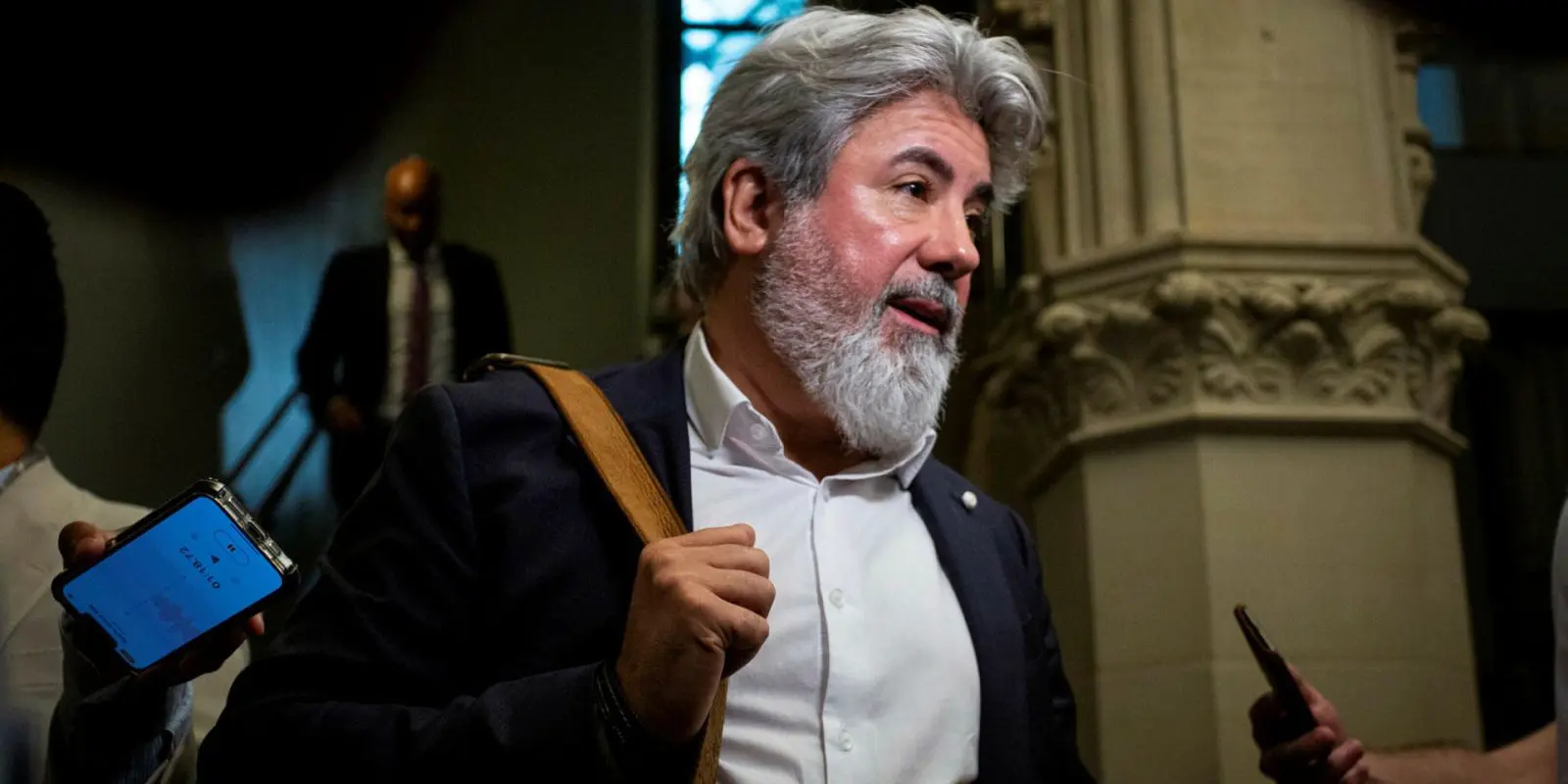August 14, 2024, The Hill Times – Competitive air travel in Canada starts with public investment
Canadians have too long paid the cost of outdated government policy when it comes to investment in air travel infrastructure, and it’s time we started to change things, writes NACC President and CEO Jeff Morrison.

(Photo of Transport Minister Pablo Rodriguez by Andrew Meade, The Hill Times)
Jeff Morrison’s OpEd is also viewable here (with Hill Times subscription)
Let’s talk about competitiveness.
After a global pandemic and years of slow economic growth, Canadian policymakers of all stripes are looking for solutions to kickstart competitiveness in our country’s major economic sectors. When it comes to air travel, they don’t need to look far. Government has an important role to play.
For years, Canada’s aviation sector has been seeking policy changes to increase competitiveness, which also happens to be key to making air travel more affordable, sustainable, and enjoyable.
Let’s start by examining why the current system doesn’t work. Canada employs a so-called “user-pay” model that is, by and large, unique to this country. It places the burden of infrastructure and service costs directly on individual passengers. In addition to these costs imposed on users, all levels of government collect revenues from air travel that are not reinvested in the system.
This is not the global norm. It has produced an uncompetitive tax and regulatory environment that drives up ticket prices for Canadians compared to their fellow travellers around the world.
The pandemic exacerbated this imbalance. Without “users,” our infrastructure partners — such as airports and NAV CANADA, which owns and operates Canada’s civil air navigation system — had to increase their indebtedness. This has increased their costs.
In peer countries, air infrastructure is viewed as a national strategic economic asset worthy of major investment via either general government revenue, or through a healthier mix of public-private partnerships.
Why shouldn’t Canadian travellers benefit from the same approach?
After all, the fundamentals are the same here at home. Aviation is a vital strategic asset that drives our economic growth and prosperity, particularly due to our country’s size. It facilitates business, trade, and tourism; supports immigration; serves as a major source of employment, investment opportunity, and tax revenue; and is foundational to the success of many other industries across Canada.
And yet, we choose to be a country where excessive third-party fees and charges upon travellers and airlines place our entire air travel system at a competitive disadvantage.
For instance, the excise tax on aviation fuel is 158 per cent higher in Canada than in the United States. Canada’s Air Travellers Security Charge is significantly higher than the equivalent fee in Canadian dollars the U.S.—up to $34.42 at home compared to approximately $7.65 south of the border. Then there are Airport Improvement Fees which can reach up to $46.00 per passenger in Canada versus approximately $6.14 per passenger in the U.S. It’s not hard to see why Canada’s airlines and passengers are at a disadvantage.
Our airports currently pay over $400-million more to the federal government in rent payments for Crown land than they receive in infrastructure support. That is rent not paid in countries like the United States. On average, Canada’s airports spend 12 per cent of their revenues on federal rent payments. That’s funding that could otherwise be used to invest in airport infrastructure for accessibility, sustainability, safety, and security—or to increase capacity.
Additionally, the proposed framework for Canada’s Air Passenger Protection Regulations released in July 2023 stands to add additional costs to air travel in this country. If these regulations are adopted without significant amendments, they will threaten regional connectivity and further isolate our nation as one of the most uncompetitive jurisdictions in the world.
Canadians have too long paid the cost of outdated government policy. And it’s time we started to change things.
We had hoped and proposed that in its recently announced study of air travel, Canada’s Competition Bureau would focus on the competitiveness of the overall system, address these issues, and provide more affordable and convenient options for the public. Although the bureau has not done this, our airlines will continue to propose meaningful solutions.
For a start, the federal government should begin by freezing all federal fees and taxes, while simultaneously conducting are view of all third-party fees and charges with an eye to lowering overall costs, and making them more transparent.
It should also fully re-invest the rents it receives from airports directly back into airport infrastructure. There is no reason why passengers should be expected to fill federal coffers at a time when Canadians need airports to be more efficient, modern, sustainable, and fully accessible to passengers with disabilities.
Beyond this, full-scale regulatory modernization is urgently needed to support a healthy aviation ecosystem that makes travel better for passengers. And, if Canada is to remain a competitive place to do business, the government—in partnership with industry—must have a stronger plan to incentivize domestic Sustainable Aviation Fuel production in the very short term.
Canadian travellers are directly seized by the impacts to affordability and competitiveness, which is why our airlines and stakeholders have been calling for these changes for years.
The path forward is clear, and the time for change is now.
– Jeff Morrison is President and CEO of the National Airlines Council of Canada

